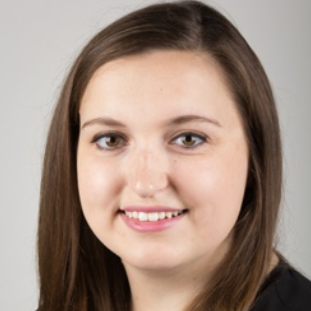Back in 2022, when she was exploring SUs in Europe with Wonkhe, our VP Education Talia had the UPP Foundation’s Student Futures work buzzing away in the back of her mind.
She’d spent half of her degree in a pandemic – so she resonated with the commission’s findings as well as the Wonkhe/Pearsons insights on belonging, and its positive impact on wellbeing.
The running theme was personal interactions, friendship, social opportunities, meaningful collaboration and ultimately community.
So the question she posed was how we might foster a welcoming community environment to allow students to feel they belong – which consequently could improve their wellbeing, their experience and their outcomes?
We all learn
SUs have long discussed the benefits they bring to individuals through their participation – skills, confidence and resilience. But while individual development is important, community matters too at Lincoln.
The university’s “one community” approach had been emphasising that each of us brings new knowledge, skills, and approaches to university life:
We welcome thousands of new members to our community each year and we benefit from sharing views and ideas from all around the globe. We actively seek to create One Community where, whoever you are, wherever you come from, you are part of our University and you can be safe enough to be challenged and supported to grow and develop. Wherever you are from, Lincoln is your home – a base for discovery, learning, and exploring your world and your future.
It also talked about the way that diversity can improve and enhance the student experience:
We create opportunities for all members of our community to get involved and contribute to their university. We value new ideas and we adapt and develop as the community grows and changes. As One Community, we are comprised of individuals with a range of different experiences, identities, and cultures. We thrive as a community because of our diversity and it is through exploring novel and different ideas together that we can understand our world better.
So the question both for the university and the union was how we bring that ethos to life – what the practical steps were to reduce isolation and build strength through working with others.
A trip to Michigan
Talia hasn’t been the only one to draw inspiration from other countries. The ACUI Student Organisations Institute at The University of Michigan gathered unions and student activities teams from across the United States, to gain strategies and skills sets that support advancement in student activities and explore relevant trends impacting student groups.
As well as familiar themes from both Europe and the Student Futures Commission, the event reminded us that success in this space often needs us to plant roots deeper in our universities – because if our student leaders need to build assertive partnerships at institution level, that probably means that successful academic communities will need to do so too.
We already had some colleagues in the university who are supporting their Academic Society without the recognition and support that they deserve and need. Others told us that they were keen to support student groups – but were not sure how to get started.
Last year, Talia said:
How could we embed and elevate these kinds of academic communities? To start with there needs to be emotional investment from schools, academic society committees and academic reps. All three are already invested in bettering students’ academic and wider student experience, and getting them together in a room to coordinate, discuss and plan can only lead to a more positive impact.
She also set us this challenge:
Maybe there needs to be conversations between SUs and university staff in schools to determine structures that work for both parties. Maybe in some SUs there need to be discussions between staff teams! Maybe one SU could develop a pilot partnership agreement for one academic area, placing ownership over different areas and how all parties will work together for the academic community.
So we wanted to go a step further, and deeper. Working with both our VP Activities and our Opportunities Manager, we’ve established a new role of “Academic Society Advocate” in the university itself.
It’s been created to encompass all of the support currently available to Academic Societies from university staff, but also to showcase how colleagues can support students in their extracurricular endeavours.
Eligibility and expectations
The role is open to any member of staff at the University of Lincoln, including academics and professional services colleagues – who are all associate members of the SU.
The role is a one-year term that can be renewed each year, subject to the approval of the new Academic Society committee each year, and the SU Executive Committee.
Advocates support their committee, offering support with their events and activities, and answer questions related to the academic studies and relevant to the course of study.
They work as a conduit of information between the committee and alumni of the relevant courses, sharing contacts with the committee to help grow membership, as well as to sharing key contacts in that industry or subject (and the university) and helping organising guest speakers to attend their events.
They’re a mentor too. They provide support for the Academic Society members in their future careers and their studies, and give guidance on applications for internships and work experience within the industry as well as conference applications and other industry related activities.
They also help with space and resources, assisting the committee with applications, whether that be by identifying and booking specialist spaces and facilities on and off campus or sharing knowledge with them regarding any grants or funding opportunities that may be available.
Getting involved
Academic society committees reach out to our Opportunities Manager and/or Academic Representation Manager to express interest in recruiting an Academic Societies Advocate.
They may already have an individual in mind, or they can approach the SU for support in shortlisting appropriate colleagues.
Once an application is in process the selected staff member is invited to a meeting to discuss this with the committee, following this both parties then complete the application and submit it to be reviewed.
If successful, an initial meeting is held, and an information pack is provided for the approved advocate.
Thereafter, meetings with the SU are then held every three months to monitor progress and provide an opportunity for questions and support, but there is flexibility in how often the Advocate meets with the committee.
We think the role will be crucial in enabling communities to develop and grow on campus.
It’s early days, but we think building these relationships between our Academic Societies and university staff will make a real difference in maximising the student experience within the community at the university.
As Talia said last year:
Students have changed what they need, and as we move towards lifelong learning, our student populations are more diverse than ever. That doesn’t mean abandoning everything we do but it may mean doing some maintenance work to allow us to align our approaches to what students need today to get the most from their student experience.


















